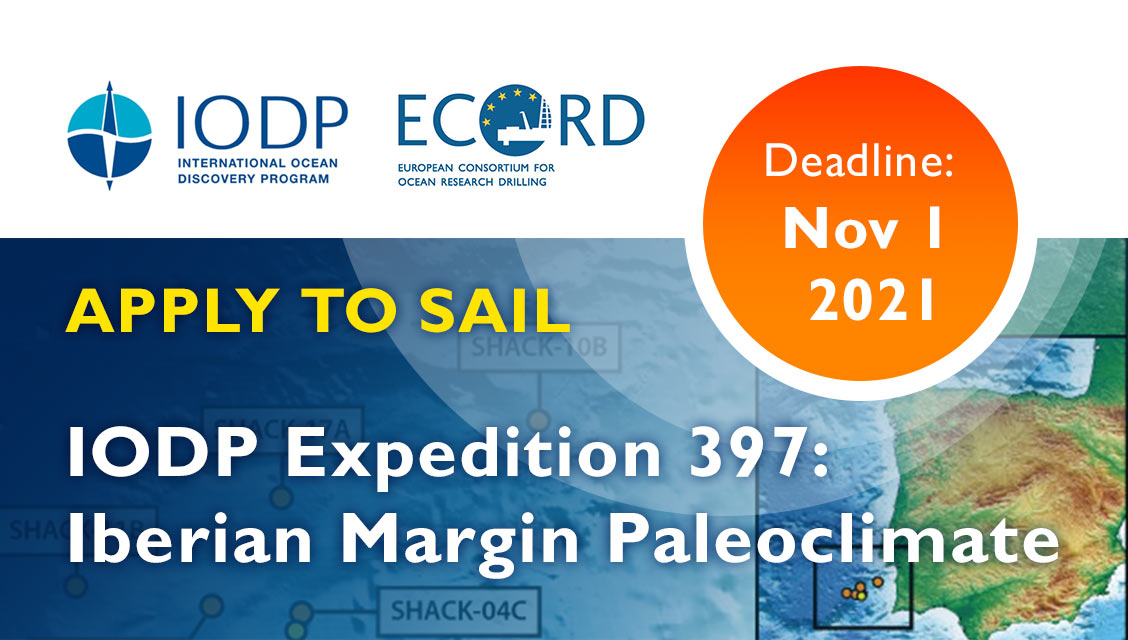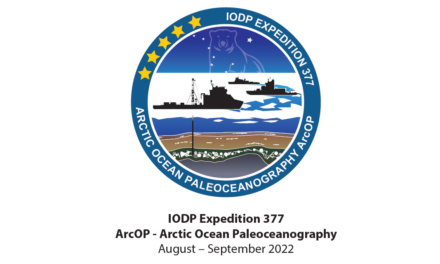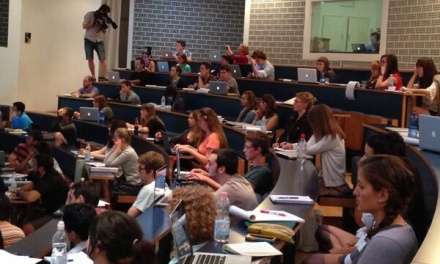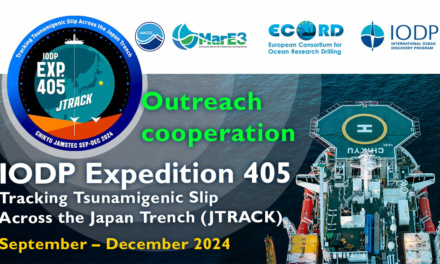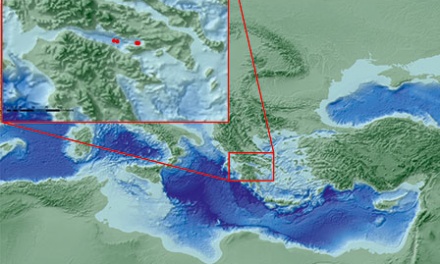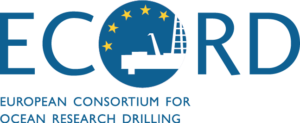CALL FOR APPLICATIONS
IODP Expeditions 397: Iberian Margin Paleoclimate
6 October to 6 December 2022
The deadline to apply is 1 November 2021
The European Consortium for Ocean Research Drilling (ECORD) offers you the unique opportunity to sail on Expedition 398 on-board the JOIDES Resolution in the framework of the International Ocean Discovery Program (IODP), an international research program for drilling at sea.
The Iberian Margin has rapidly accumulating sediment that contains a high-fidelity late Pleistocene record of millennial climate variability (MCV). Sir Nickolas Shackleton demonstrated that piston cores from this region can be correlated precisely to polar ice cores from both hemispheres. Moreover, the narrow continental shelf off Portugal results in the rapid delivery of terrestrial material to the deep-sea environment, thereby allowing correlation of marine and ice core records to European terrestrial sequences. Few places exist in the world where such detailed marine-ice-terrestrial linkages are possible. The continuity, high sedimentation rates, and fidelity of climate signals preserved in sediments make this region a prime target for ocean drilling. During IODP Expedition 339, Site U1385 was drilled and recovered a complete record of hemipelagic sedimentation for the last 1.43 Ma with a mean sedimentation rate of 11 cm/kyr. IODP Expedition 397 will extend this remarkable sediment archive through the Pliocene and recover a complete depth transect of five sites that will provide a complete suite of downhole records with which to study past variability in the major subsurface water masses of the North Atlantic.
There are ten primary scientific objectives
- Document the nature of MCV for older glacial cycles of the Quaternary, including changes in surface and deep-water circulation during the “100-kyr world”, Mid Pleistocene transition, “41-kyr world”, and intensification of Northern Hemisphere Glaciation.
- Derive a marine sediment proxy record for the Greenland and Antarctic Ice Cores to examine the amplitude and pacing of MCV during the Quaternary.
- Determine interhemispheric phase relationships (leads/lags) by comparing the timing of proxy variables that monitor surface (Greenland) and deep-water (Antarctic) components of the climate system, thereby overcoming problems of age determination on millennial and sub-millennial time scales.
- Study how changes in orbital forcing and glacial boundary conditions affect the character of MVC and, in turn, how MCV interacts with orbital geometry to produce the observed glacial-to-interglacial patterns of Quaternary climate change.
- Reconstruct the climate transitions into (inception) and out (termination) of glacial periods at high temporal resolution.
- Reconstruct the history of changing local dominance of northern-sourced versus southern-sourced deep water using the depth transect of IODP Expedition 397 sites on orbital and suborbital time scales during the Quaternary.
- Investigate climate during past interglacial periods, including the warm Pliocene period prior to the intensification of Northern Hemisphere glaciation.
- Link terrestrial, marine and ice core records by analyzing pollen and terrestrial biomarkers that are delivered to the deep-sea environment by rivers.
- Contribute to the development of a global stratigraphy having sufficient resolution to study abrupt climatic events and their phase relationships.
- Interface with projects aiming to recover old ice (including the European “Beyond EPICA – Oldest Ice” core project) to integrate marine sediment cores recovered during Expedition 397 with existing and future ice cores from Antarctica.
Expertise sought
We encourage applications from all qualified scientists. ESSAC is committed to a policy of broad participation and inclusion, and to providing a safe, productive, and welcoming environment for all program participants. Opportunities exist for researchers (including graduate students) in all shipboard specialties, including micropaleontologists, sedimentologists, volcanologists, petrologists, igneous geochemists, inorganic and organic geochemists, microbiologists, paleomagnetists, physical properties specialists, and borehole geophysicists. Good working knowledge of the English language is required.
The Application Process is open to scientists in all ECORD member countries. Please download the Apply to Sail general application forms from the ESSAC webpage: http://www.ecord.org/expeditions/apply-to-sail/
ECORD Science Support & Advisory Committee
Antony Morris (ESSAC Chair)
Hanno Kinkel (ESSAC Science Coordinator)
e-mail: essac@plymouth.ac.uk
The Application Process
The Application Process is open to scientists in all ECORD member countries. Please download the Apply to Sail general application forms from the ESSAC webpage:
Please, fill out all applicable fields and send it to the ESSAC office by email (essac@plymouth.ac.uk) with the following additional documents by the deadline of 30 September 2021:
- A letter of interest outlining your specific expertise, previous involvement in DSDP/ ODP/ IODP expeditions, research interests, primary research goals of your proposed participation.
- CV and publication list.
- Early career researchers must additionally provide a letter of support from their host institution, including information on post-cruise science support.
All applications should state how you intend to achieve your proposed scientific objectives, with information on the funding scheme and support from your institution or national funding agencies. More information can be found under: http://www.ecord.org/expeditions/apply-to-sail/
In addition to the ESSAC application, all applicants must inform their national office or national delegate and send them a copy of their application documents. The national offices or national delegates can also provide information regarding travel support, post-cruise funding opportunities, etc.
See http://www.ecord.org/about-ecord/about-us/ for a list of the national contact persons.
For further information or questions, please contact the ESSAC Office:
ECORD Science Support & Advisory Committee
Antony Morris (ESSAC Chair)
Hanno Kinkel (ESSAC Science Coordinator)
School of Geography, Earth and Environmental Sciences, Plymouth University, UK Drake Circus, Plymouth PL4 8AA, UK
e-mail: essac@plymouth.ac.uk
website: www.ecord.org

